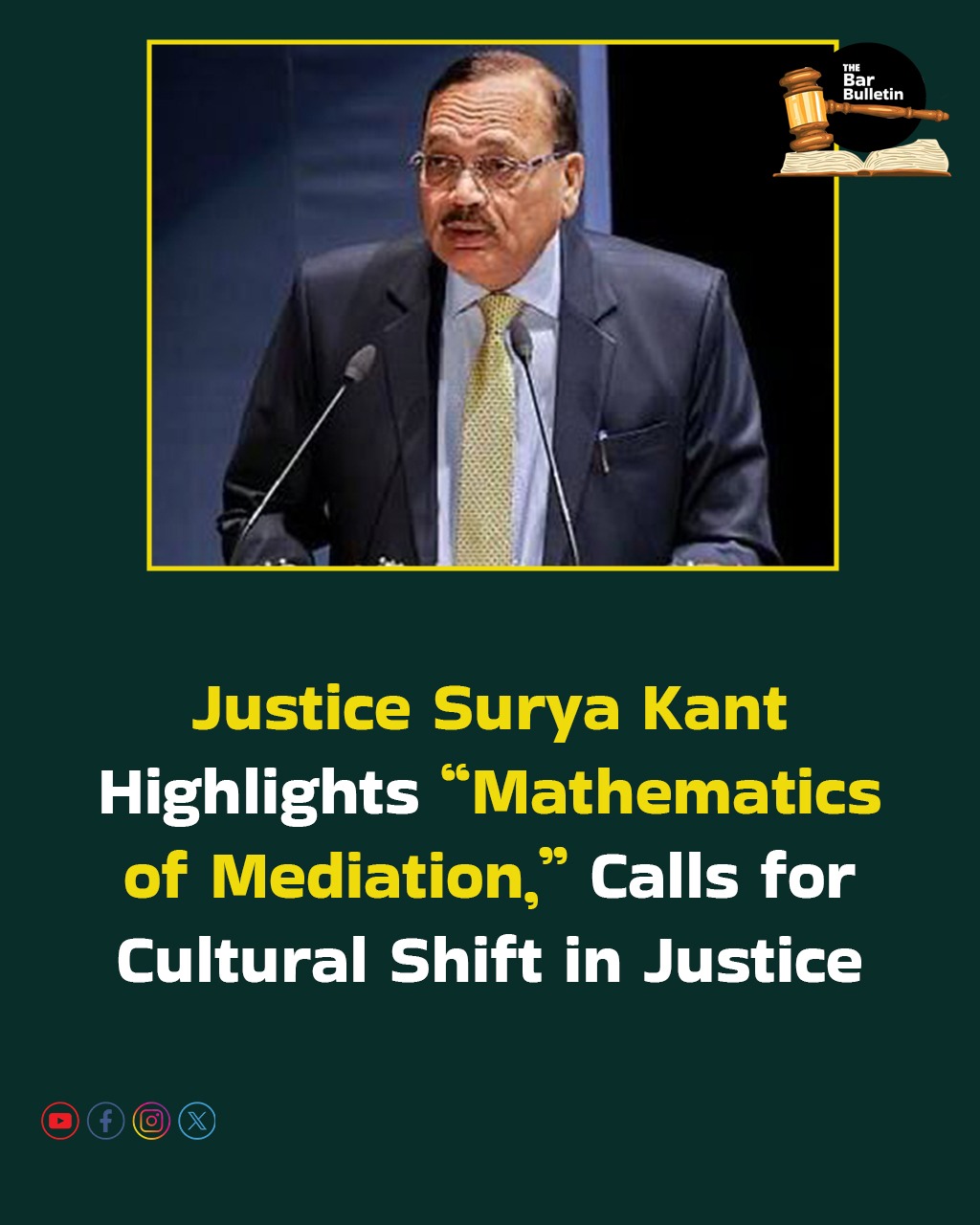Delivering the inaugural address at the 2nd National Mediation Conference held at Loka Sev Bhawan, Bhubaneswar, Hon’ble Mr. Justice Surya Kant, Judge, Supreme Court of India, underscored the transformative role of mediation in shaping a more inclusive, harmonious, and people-centric justice delivery system. The conference was attended by a distinguished gathering, including Dr. Hari Babu Kambhampati, Governor of Odisha; Justice B.R. Gavai, Chief Justice of India; Shri Dharmendra Pradhan, Union Minister of Education; Shri Mohan Chandra Manjhi, Chief Minister of Odisha; Shri Prithviraj Harichandan, Odisha’s Minister of Law, Works, and Excise; Justice Harish Tandon, Chief Justice of the Orissa High Court; and Attorney General for India, Shri R. Venkataramani, alongside judges, judicial officers, and members of the legal fraternity.
Justice Surya Kant began his remarks by invoking the historic transformation of Emperor Ashoka on the soil of Kalinga, where conquest gave way to compassion and power yielded to principle. “True strength resides not in force, but in dialogue, dialogue that heals, restores, and unites,” he said, linking the ancient ethos of reconciliation with the modern-day promise of mediation.
Highlighting the limitations of adversarial litigation, Justice Surya Kant emphasized that people seek more than verdicts, they seek pathways to move forward. He described mediation as a process that “subtracts bitterness, divides burdens, and adds hope,” likening it to equations with infinite solutions, in contrast to the narrow win-lose framework of traditional court processes. He also described mathematics of mediation as
it subtracts bitterness, divides burdens, and adds hope to the broken equations of human relationships.
Recalling a case from his tenure as a High Court judge involving two brothers disputing their inherited textile business, Justice Surya Kant noted how mediation enabled them to rediscover their true inheritance, the bond built by their father rather than remain trapped in their dispute over looms and machinery.
Justice Surya Kant acknowledged the Mediation Act, 2023, as a strong statutory foundation but stressed that laws alone cannot build trust or nurture dialogue. “The true test of this Act will not be found in the text of its provisions, but in the trust it builds in the lives of our citizens,” he observed.
He cited emerging cultural shifts, including clients increasingly requesting mediation before litigation, law firms promoting dispute resolution practices, and the judiciary launching the Mediation for the Nation campaign, a 90-day structured initiative to encourage resolution of disputes nationwide.
Connecting modern statutory mediation with India’s traditional ethos, Justice Surya Kant reminded the audience of community-based dispute resolution under the banyan tree. “If trials deliver verdicts, mediation delivers futures, and the true measure of justice will lie not in cases decided, but in the peace it creates,” he said.
Concluding his address, he invoked a verse from the Rigveda—“Sangachhadhwam samvadadhwam, sam vo manamsi janatam” (“Move together, speak together, let your minds be in harmony”) to highlight mediation’s essence of turning disputes into dialogue and dialogue into peace.
Justice Surya Kant urged all stakeholders to make mediation not merely an aspiration but an institutionalized practice. “Let this conference mark our resolve to build a justice system defined not by verdicts, but by the trust it inspires. That is the legacy we must leave for future generations,” he concluded.



